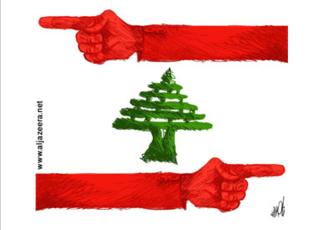
Beirut, Lebanon- Prime Minister Tammam Salam and other Lebanese officials praised the deal reached between Iran and world powers Tuesday and expressed optimism that the agreement would usher a new era of peace to the region.
“We hope that this development will have positive repercussions on the situation in the Middle East, in a way that helps reduce tensions and spreads peace and stability,” Salam said in a statement issued by his media office.
Free Patriotic Movement leader Michel Aoun wrote on Twitter that “the nuclear deal is a promising step toward peace in the Middle East.”
Foreign Minster Gebran Bassil said the results of the nuclear deal would have good implications on the “war on terrorism” in the region,.
Even before the final agreement was reached Lebanese Parliament Speaker Nabih Berri told visitors on Sunday that an Iranian nuclear deal could help pave the way to ending major conflicts in the Middle East, and the presidential vacuum in Lebanon.
“I expect the first fruits to be a relief to the Yemen crisis as a regional priority concern by the countries signing the Iranian nuclear agreement,” Berri was quoted as saying by visitors on Sunday.
Marada Movement chief Suleiman Frangieh also hailed the agreement.
“We hope the deal that has gained international support will have positive implications on Lebanon’s economy and security,” Frangieh tweeted.
Former Lebanese President Michel Sleiman also expressed his delight in a tweet.
“The nuclear deal was easier [to reach] than a deal to elect a Lebanese president. Seriously!!!!!!!” he wrote.
Progressive Socialist Party leader Walid Jumblatt’s stance on the matter was rather ambiguous.
“The path towards the Iran deal was paved through thousands of victims in Syria and Iraq,” Jumblatt told An-Nahar, adding that it will transform the situation in Iraq and Syria. This is a possible reference to the hundreds of thousands of people killed in both Syria and Iraq. Iran is helping the regimes of both countries against the rebels, directly and through proxies like Hezbollah of Lebanon and Iraq
Lebanese Forces leader Samir Geagea is the only official inLebanon so far to oppose the generally positive atmosphere.
“Some have hopes about the nuclear deal but I disagree,” he told reporters after meeting with Prime Minister Tammam Salam Tuesday.
He stated that the nuclear deal is only a “mere agreement” and that it can potentially aggravate the situation in the Middle East.
At its best it would only freeze the nuclear issue in Iran, he said.
News of a nuclear deal with Iran that would lift economic sanctions in return for Tehran’s commitment to significantly curtail its nuclear program was greeted with jubilation in many diplomatic circles, both in Iran and in the West, particularly among diplomats and journalists who have spent years covering the seemingly intractable conflict.
The former Iranian ambassador to the United Nations, Mohammad Sadegh Kharazi, was quoted as saying by The Guardian on Twitter that the deal ended the “Cold War” between Iran and the United States.
On the other hand Israeli Prime Minister Benjamin Netanyahu described the agreement reached on Tuesday by Iran and major world powers on Tehran’s nuclear program as a historic mistake and said he would do what he could to block Iran’s nuclear ambitions.
“Iran is going to receive a sure path to nuclear weapons. Many of the restrictions that were supposed to prevent it from getting there will be lifted,” Netanyahu said at the start of a meeting with Dutch Foreign Minister Bert Koenders in Jerusalem.

Leave a Reply
You must be logged in to post a comment.